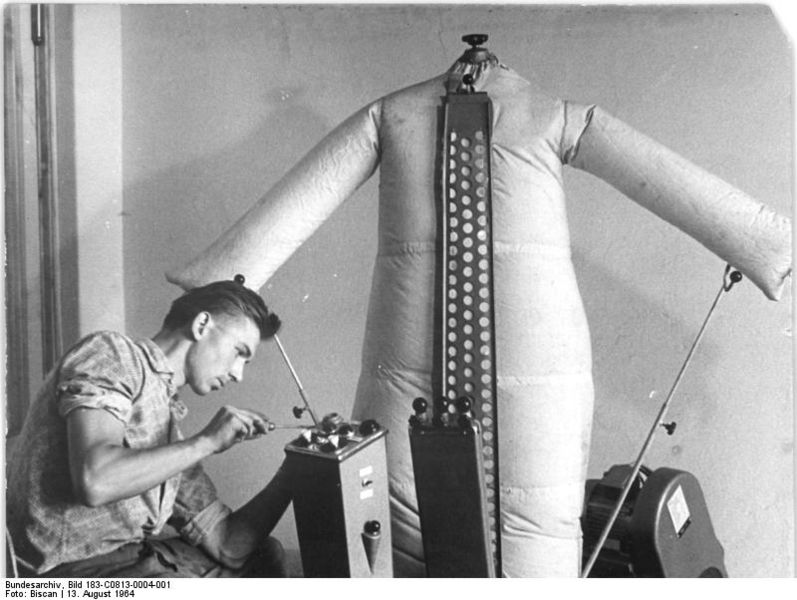I’m glad Newsweek is a thing again. The opening of a really good Kyle Chayka article from that publication about the frontlines of carbon-silicon relations, in the U.S. military, where cooperation, not competition, is key:
“For a glimpse at the future of human-robot interactions, it might be better to look at what’s happening in the United States military than analyzing Her, in which Joaquin Phoenix’s character falls in love with an OS voiced by Scarlett Johansson. Throughout every department of our armed forces, autonomous robots are playing a larger role in every aspect of warfare than ever before, and soldiers are developing some unorthodox relationships with their machines. Just ask Danielle.
Danielle was a TALON, a remotely operated robot used for reconnaissance in combat, as well as in tough-to-reach terrain like rocky canyons and caves. Connor, an Army sergeant, recalled that while deployed in Afghanistan, soldiers had to hole up inside their trucks each night, packing several humans as well as piles of equipment including robots into a small space. ‘Everything had to be locked up, so our TALON was in the center aisle of our truck,’ he recalls. ‘Our junior guy named it Danielle so he’d have a woman to cuddle with at night.’ Sadly, the romance was not to last: ‘Danielle got blown up,’ Connor says.
Just as World War II pilots gave their planes names like Memphis Belle, and decorated them with nose art, today’s soldiers are naming their robots after movie stars, musicians and ex-girlfriends. Brady, another Army sergeant, called his TALON Elly. ‘I talked to her, when I was at the controls. I’d be coaxing her, ‘C’mon honey,” he says. ‘They’re kind of part of the family.’ Ben, an Air Force staff sergeant, says that when one robot was detonated by an IED, his team ‘recovered the components, the carcass, if you will, and brought it back to base. The next day there was a sign out in front that said, ‘Why did you kill me? Why?’
From holding elaborate funerals for robots, complete with 21-gun salutes, valor medals, and memorial markers, to identifying with them as ‘an extension of our own personality,’ as Simon, a Marine sergeant, says, soldiers are now working effectively with robots on a more intimate level than in perhaps any other field, saving human lives in the process. The anecdotes above are from a series of interviews by University of Washington PhD Julie Carpenter, who studies human-robot interaction (the subjects’ names were changed to preserve their anonymity). The explosive ordnance disposal personnel Carpenter interviewed were, she says, ‘treating robots in ways that don’t fit neatly into how we treat other tools.'”
Tags: Julie Carpenter, Kyle Chayka

